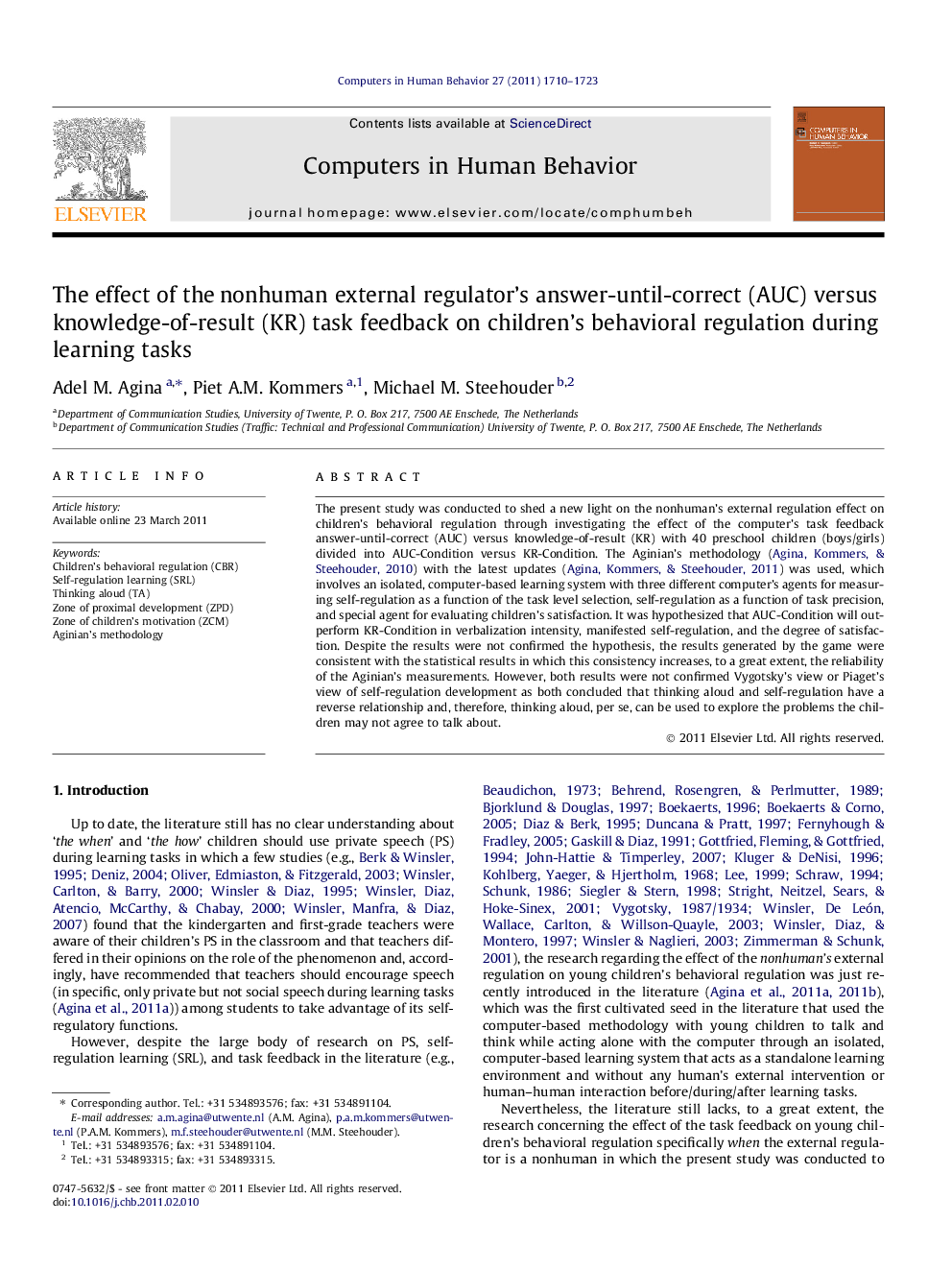| کد مقاله | کد نشریه | سال انتشار | مقاله انگلیسی | نسخه تمام متن |
|---|---|---|---|---|
| 350980 | 618461 | 2011 | 14 صفحه PDF | دانلود رایگان |

The present study was conducted to shed a new light on the nonhuman’s external regulation effect on children’s behavioral regulation through investigating the effect of the computer’s task feedback answer-until-correct (AUC) versus knowledge-of-result (KR) with 40 preschool children (boys/girls) divided into AUC-Condition versus KR-Condition. The Aginian’s methodology (Agina, Kommers, & Steehouder, 2010) with the latest updates (Agina, Kommers, & Steehouder, 2011) was used, which involves an isolated, computer-based learning system with three different computer’s agents for measuring self-regulation as a function of the task level selection, self-regulation as a function of task precision, and special agent for evaluating children’s satisfaction. It was hypothesized that AUC-Condition will outperform KR-Condition in verbalization intensity, manifested self-regulation, and the degree of satisfaction. Despite the results were not confirmed the hypothesis, the results generated by the game were consistent with the statistical results in which this consistency increases, to a great extent, the reliability of the Aginian’s measurements. However, both results were not confirmed Vygotsky’s view or Piaget’s view of self-regulation development as both concluded that thinking aloud and self-regulation have a reverse relationship and, therefore, thinking aloud, per se, can be used to explore the problems the children may not agree to talk about.
► Results generated by the game were inline with the statistical results.
► Both results did not confirm the hypothesis.
► Both results did not confirm Vygotsky’s view or Piaget’s view of SRL development.
► Thinking aloud and self-regulation have a reverse relationship.
► Thinking aloud can be used to explore problems that children may not talk about.
Journal: Computers in Human Behavior - Volume 27, Issue 5, September 2011, Pages 1710–1723